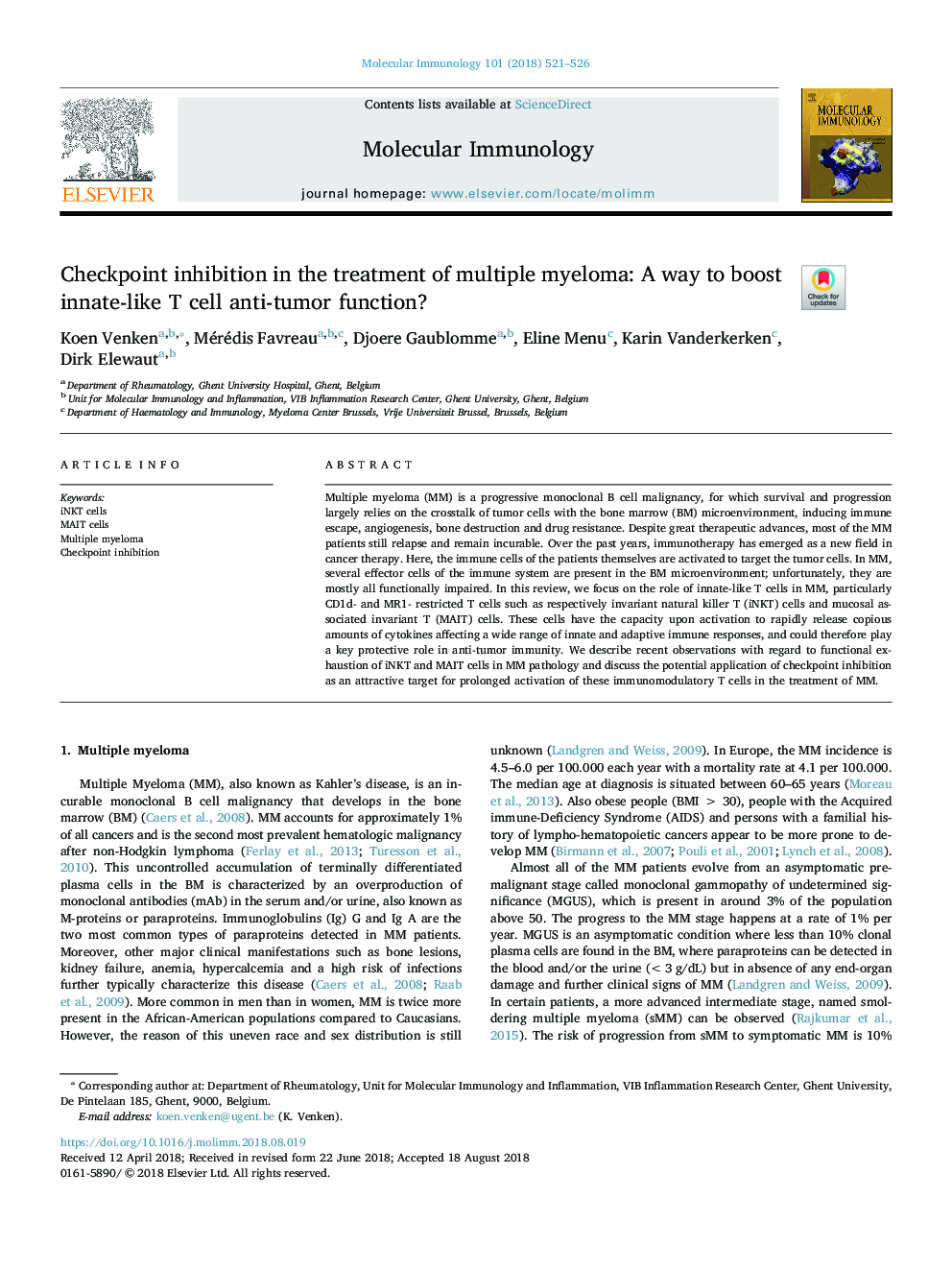| Article ID | Journal | Published Year | Pages | File Type |
|---|---|---|---|---|
| 9955380 | Molecular Immunology | 2018 | 6 Pages |
Abstract
Multiple myeloma (MM) is a progressive monoclonal B cell malignancy, for which survival and progression largely relies on the crosstalk of tumor cells with the bone marrow (BM) microenvironment, inducing immune escape, angiogenesis, bone destruction and drug resistance. Despite great therapeutic advances, most of the MM patients still relapse and remain incurable. Over the past years, immunotherapy has emerged as a new field in cancer therapy. Here, the immune cells of the patients themselves are activated to target the tumor cells. In MM, several effector cells of the immune system are present in the BM microenvironment; unfortunately, they are mostly all functionally impaired. In this review, we focus on the role of innate-like T cells in MM, particularly CD1d- and MR1- restricted T cells such as respectively invariant natural killer T (iNKT) cells and mucosal associated invariant T (MAIT) cells. These cells have the capacity upon activation to rapidly release copious amounts of cytokines affecting a wide range of innate and adaptive immune responses, and could therefore play a key protective role in anti-tumor immunity. We describe recent observations with regard to functional exhaustion of iNKT and MAIT cells in MM pathology and discuss the potential application of checkpoint inhibition as an attractive target for prolonged activation of these immunomodulatory T cells in the treatment of MM.
Related Topics
Life Sciences
Biochemistry, Genetics and Molecular Biology
Molecular Biology
Authors
Koen Venken, Mérédis Favreau, Djoere Gaublomme, Eline Menu, Karin Vanderkerken, Dirk Elewaut,
